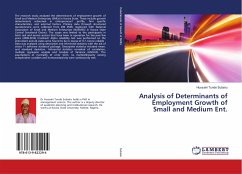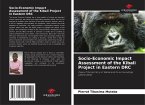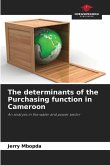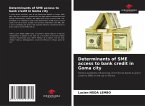The aim of this study is to understand how graduates of vocational training units manage to enter salaried employment or agricultural entrepreneurship. To achieve this, a survey was conducted in the departments of southern Benin, using a questionnaire and interview guide with a random sample of 400 graduates of agricultural training units. A qualitative approach was adopted for data analysis, and further developed through econometric modelling. The qualitative analysis uses pivot tables and discourse analysis, while the quantitative analysis uses a multinomial logistic model. Our results show that the conditions for admitting learners to training units, the level of study required for entry, time management and the planning of teaching and production activities, the reputation of the training center at the time of training and the number of years' experience in training prior to the learner's arrival at the training unit are all factors that facilitate professional integration.
Bitte wählen Sie Ihr Anliegen aus.
Rechnungen
Retourenschein anfordern
Bestellstatus
Storno









